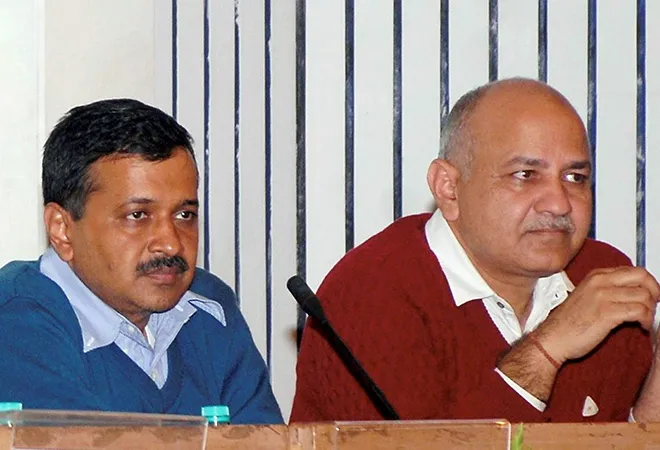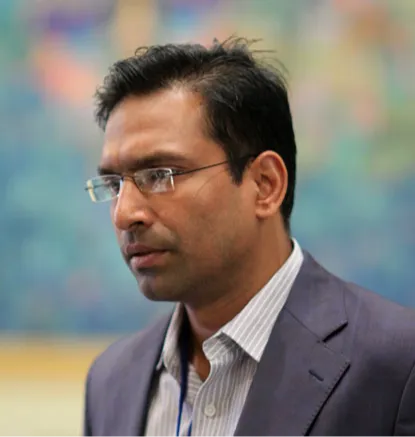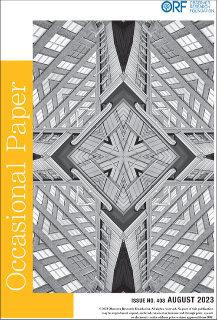India’s National Capital is witnessing another unseemly political standoff between the elected government led by Aam Aadmi Party (AAP) and the Lieutenant Governor (LG). The ongoing tussle is over LG Anil Baijal’s refusal to clear AAP government’s proposal to home deliver government services to citizens. As per Delhi’s Deputy Chief Minister Manish Sisodia’s tweets, the LG has returned Delhi government’s proposal to deliver 40 government services by raising a number of issues including safety and security of women and senior citizens, breach of privacy, the possibility of corruption and additional burden on the state exchequer. LG’s suggestions have not gone down well with the AAP government which sees a political motive in the former’s move. LG’s latest act has been dubbed as “obstructionist” and “anti-people”. Lambasting his latest move as “anti-people”, Sisodia tweeted that the “LG has taken decision without knowing field reality.”
While many past duels between two principal constitutional authorities in the national capital have been on trivial issues, the present tussle is on serious public policy issue with plenty of ramifications for India’s national capital. It is widely known that Delhi has a poor record of delivering public services, which is characterised by glaring inefficiencies, corruption, official apathy backed by a broken grievance redressal system. More importantly, there is a wide disparity in access and levels of public services delivered among different sections of citizens. While the Delhi government needs to be complimented for openly acknowledging challenges in service delivery, the key question is over the solution on offer.
The questions raised by the LG on the proposed scheme are based on sound reasoning. As a former secretary of urban development and someone who has handled initial years of flagship Jawaharlal Nehru National Urban Renewal Mission, Baijal is a man who understands the complex matrix of service delivery in urban space. While AAP might be thinking its idea of doorstep delivery is revolutionary, no major countries including the ultra-populist ones in Latin America have dared to venture into something of this kind. Sending thousands of officials to prepare documents and upload them to speed up their delivery in a citywide is going to be a gargantuan task with attendant problems. Importantly, given its size, the scheme would cost the exchequer a bomb. Further, the proposed system’s claim of eliminating corruption and delay are also questionable. For lessons look at the experience of Aadhaar card. Supposed to delivered free of costs, both government and private run Aadhar centres were routinely collecting illegal fees from desperate citizens.
LG is right in suggesting digital delivery of said services proposed by Delhi government. Sisodia’s claim of digitisation of services as ineffective to handle the huge volume of service demands proves the government clueless about the role of digital technology that is revolutionising service delivery across the world. For instance, Delhi can learn to emulate from the Singapore One model that effortlessly delivers 1,060 business services (one-stop, non-stop, from birth to death) to a citizen electronically through a robust digital platform. Why look for foreign examples when we have award-winning e-governance models galore in India.
If Delhi is serious, it must pay close attention to several pioneering initiatives undertaken by a number of Indian states to address their service delivery challenges. There is nothing sort of revolution that is taking shape at state levels largely through digital routes. Since 2010, once laggard states like Madhya Pradesh and Bihar have pioneered the concept of time-bound delivery of public services. Largely modelled on Citizens’ Charter revolution in the UK in the early 1990s, as many as 20 Indian states have enacted what is called the Right to time-bound Public Services (RTS) whereby “access to basic services” has been made a legally enforceable right. According to many recent studies, the service guarantee legislation is emerging as a game changer in seamlessly delivering routine services. Given its popular appeal, political leadership in some of the pioneer states such as MP and Bihar have created separate ministry and department of public service management.
Incidentally, Delhi was one of the earliest states to enact right to time-bound services (RTS) in 2011. The best thing about the Delhi Act was that unlike MP, Bihar and many other states, it had a robust ICT platform called e-SLA (electronic Service Level Agreement among various departments) to facilitate effective delivery of services promised in the Act. Yet, no one has heard anything on Delhi Act since the time of its inception.
After coming to power in 2015, AAP has done little to improve the provision. Curiously, the very first step that the AAP government took when it came to power with an overwhelming majority in 2015 was to quickly amend the 2011 law to drop the LG name and insert its own in the 2011 Act. AAP is yet to take ownership of the enabling legislation brought out by the then Sheila Dixit government. The proof lies in the total absence of publicising the benefits of the new provision. While Delhi government could splurge over INR 500 crore in 2015 (heavily criticised by the auditor) to showcase its achievements, it didn’t think prudent to allocate half a percentage of its publicity budget to popularise this innovative scheme.
One must remind himself that Delhi’s Chief Minister Arvind Kejriwal rose to his present position as an RTI activist filing application for voiceless citizens and organising social audit to expose corrupt deals and improve accountability in institutions. This is quite ironical that the same citizen activist has chosen to abandon an excellent legal instrument (RTS) to empower ordinary citizens and is happy to embrace a scheme (doorstep delivery) that is cumbersome, costly and hugely unsustainable. It is high time the Delhi government stops resorting to populist gimmicks and start governing.
This commentary originally appeared in DNA.
The views expressed above belong to the author(s). ORF research and analyses now available on Telegram! Click here to access our curated content — blogs, longforms and interviews.




 PREV
PREV


